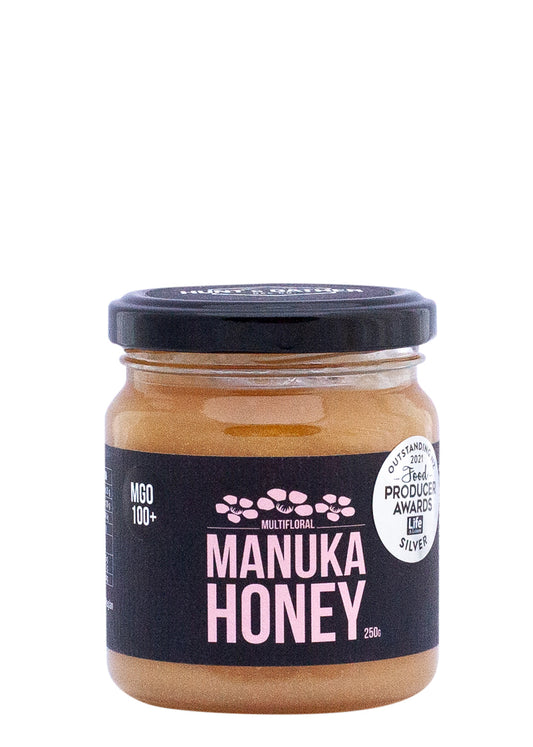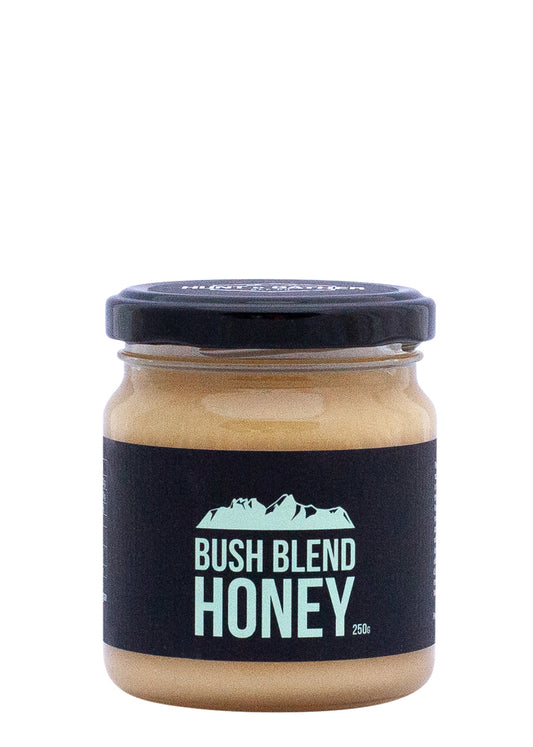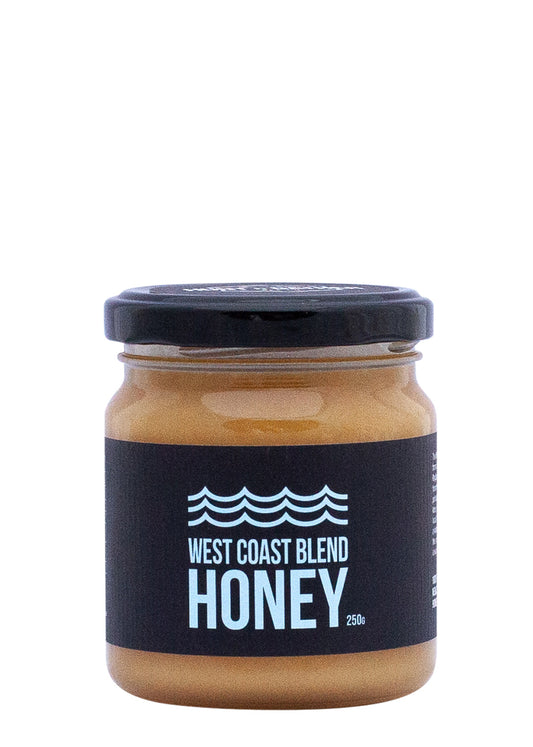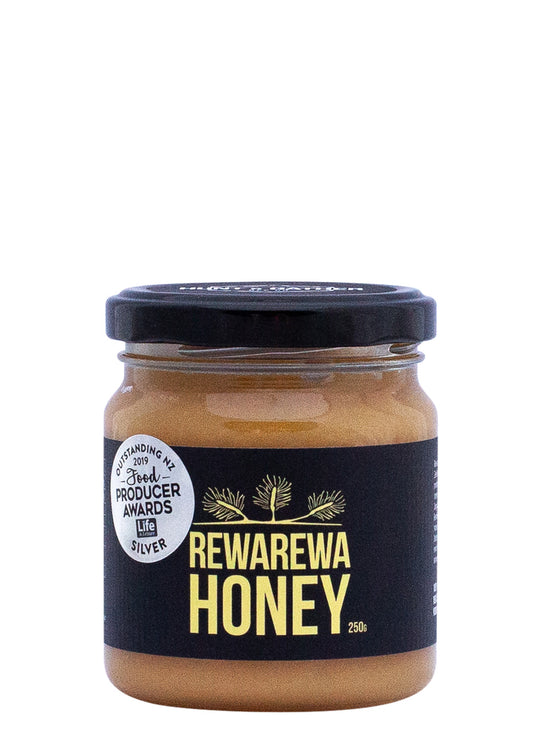
A month in to 2022, and a about half way through harvest season, getting a call from one of our biggest landowners to say that they had been hit hard by Cyclone Dovi was not a great moment.
The poor family had woken up after more than 200mm of rain fell on their farm in 24 hours to find their entire farm had turned into a giant river. The calmness in his voice was almost unsettling as he described how it wasn't possible for them to leave their house because they didn't own a boat. "We should be alright" he said "we've got food for about a month, but don't tell my wife and daughter I said that".
As he explained to us, a large group of our hives which we had harvested the honey from about 2 weeks earlier had unfortunately been right in the path of a torrent of water that must have been from a watershed further up the valley. He could see ruined bits of our hives floating around what used to be their paddocks.
Fortunately, the family were safe and sound, and they had got their stock to higher ground. The problem with beehives though, is that you can't move them in a hurry, and while we only had light rain at our place, 2 hours away from the farm, they had absolutely torrential downpours. The roads into their farm were all cut off, their tracks were washed out, fallen trees and huge slips covered the farm, and once the flood waters subsided there was mud as far as you could see.
Of course we were worried. This particular farm had more of our hives on it than any other, and they were only split between two sites on the farm. While the family were certain that the lower site was washed out, we didn't know about our hives further up the valley. We were worried that we might have lost them all which would be millions and millions of bees, their homes and their babies still in the hives. After we were hit hard by disease last Autumn we had been working super hard, and succeeding, to make sure that our colonies were strong, healthy and productive heading into the Autumn this year. To think we might have lost so many to the weather was really devastating.
We looked into potential ways that we could get in and check on the hives - maybe a helicopter ride or even a drone. But the location was too far for a drone, and the cost of a chopper ride was far beyond the budget. So instead we had a couple of weeks of tense waiting until the farmers were able to get up to the top site in the valley. The call to say that all the hives were still standing, full of bees and they were foraging on the honey left in the smashed up hives further down the valley was like a breath of fresh air - we hadn't lost them all, and better yet, they had a food source!
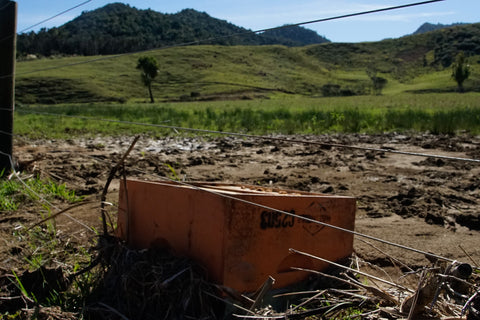
It took a couple more weeks until the diggers were able to clear enough of a track for the boys to get in and assess the hives - and of course take a food parcel of local goodies in for the family. They picked up the bits of hives that were strewn across the farm (about half of them were gone - somewhere in the Tasman Sea probably!) and brought them home for a waterblast. Amazingly, they even found a couple of upside down hives with live colonies inside. They too came home for a bit of TLC.
Happily the hives that did make it through the weather were strong, healthy and chocka full of honey. They will soon come home too, to make sure that we can access them right through the Winter, and they will go back next Spring.
So what did we learn? Well this has been a big test of our 'glass half full' thinking. Half of our hives survived, that is really something to celebrate. We got to make connections with cool people like the Rural Support Trust while trying to get some help for the farmers. We learnt even more about resilience and within a day we had switched our thinking to 'upwards and onwards'. As my nana says - everyone gets to have a bad day, but tomorrow's a new day, get up and get on with it. We also had really amazing support from our customers, with loads of messages, calls and emails to ask how they could help. We appreciated every single one.


